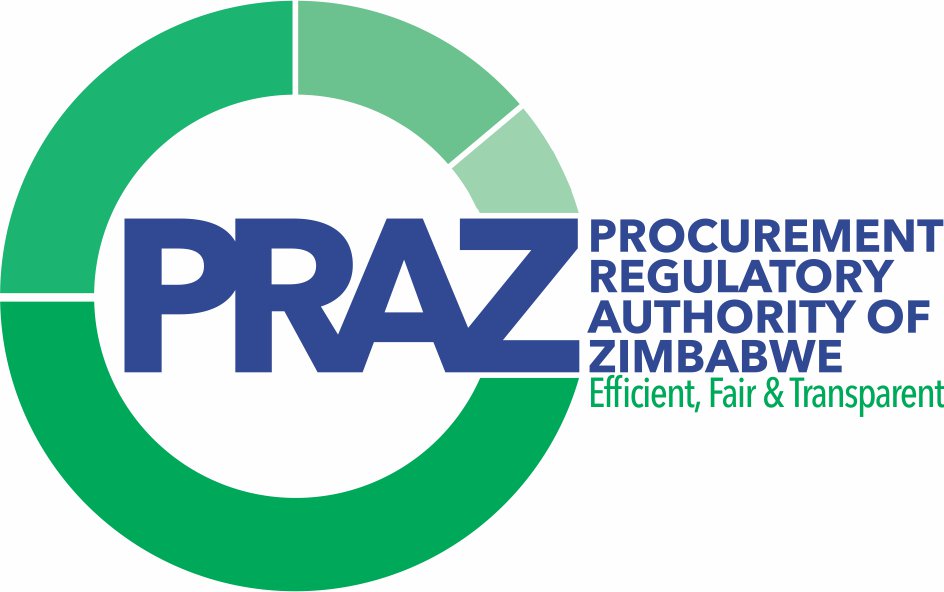Local entities to get preference in public procurement: PRAZ
LOCAL entities will receive preference in the awarding of public procurement contracts and tenders to give them the edge in the face of increased competition they will likely face under the African Continental Free Trade Area (AfCFTA), to which Zimbabwe is a signatory.
The Government says it is focusing on enhancing the effectiveness of its public expenditure for socioeconomic growth and enterprise development to drive inclusive growth.
It said this will require the Procurement Regulatory Authority of Zimbabwe (PRAZ) to refine its procurement policy and procedures to render full support to the Government’s initiatives.
Industry and Commerce Ministry permanent secretary Dr Thomas Utete Wushe said this at a Buy Zimbabwe public procurement conference held yesterday under the theme “Leveraging public procurement to accelerate Zimbabwe’s economic development.”
He said that taking into account the important role of local public procurement in driving economic growth, the Government was working on providing an incentive framework where manufacturers and producers with rated local content would be given preference in Government and local authority tenders.
“The basis for the preference of local producers and suppliers is already contained in Section 29 of the Public Procurement and Disposal of Public Assets Act.
“As we strengthen our manufacturing base and prepare for competition in the African Continental Free Trade Area, we envision moving towards a position where there is preference in bidding for Government and local authority tenders in favour of local companies with validated local content through content rating in association with Buy Zimbabwe and its rating partners.”
Dr Wushe said sectors with long-term commitments of resources and procurement contracts should be realigned to reflect longer durations that are attractive to investors.
“It is always about collaboration, so through our ministry, we are supporting and leading what we call engagement and reengagement processes with business.
“As Government, we urge the private sector to support the industrialisation drive by building capacity in cotton, pharmaceuticals, leather, soya, sugar, and lithium.”
Dr Wushe said Buy Zimbabwe Works continues to support the promotion of local production and the preference for locally produced goods and services as a driver towards achieving the Government’s industrialization goals under National Development Strategy 1 and Vision 2030.
He noted that since its inception in 2011, Buy Zimbabwe had lobbied the Government for the enactment of laws and policies that promote local industries while advancing Zimbabwe’s manufacturing capacity.
“It is worth noting that in their quest to promote local production, Buy Zimbabwe has now focused on public procurement, hence the theme for this year’s conference.
“These efforts are aligned to what other countries in the Southern African region have done through various initiatives to support the procurement of locally manufactured products and promote economic growth in their respective countries.”
Dr Wushe added that the Government is aware of the critical role that public procurement plays as a key driver in service delivery and the performance of ministries and their departments.
To this end, he noted that the Second Republic has adopted a policy shift towards the promotion of local public procurement through the prioritisation of the awarding of tenders for major construction work and other projects to local contractors.
Dr Wushe said massive projects such as the rehabilitation of the Harare-Beitbridge Highway, the construction of the Kunzvi Dam, the Chivhu Dam, the Gwayi-Shangani Dam, and the construction of various infrastructure projects are being accomplished through local public procurement.
“As we move towards Vision 2030 of transforming into an upper middle-income society, the Second Republic has implemented over 5 000 projects and breathed new life into stalled projects, all driven primarily by local public procurement.
“The Government will no longer tolerate failure to implement projects and initiatives due to a lethargic public procurement process.
“Therefore, I urge the Procurement Regulatory Authority of Zimbabwe to redouble efforts to ensure public procurement supports our developmental drive, which leaves no place and no one behind.
“Equally important is an inclusive approach that takes on board other players on the local scene who have been hitherto excluded from the public procurement process, especially those with demonstrable local content architecture,” he said.
Commenting on the recently introduced local currency, Zimbabwe Gold (ZiG), he said the currency had already brought price and exchange rate stability.
He, however, urged local suppliers and retailers to adhere to responsible business practices and avoid charging goods in local currency above the prevailing official ZiG-US dollar exchange rate.
“The behaviour of charging exorbitant prices on local goods works against the local content agenda as it makes the goods more expensive. This drives away consumers and reduces demand for local goods and services.
“I also want to take this opportunity to warn contractors who have in the past been reported to engage in parallel market activities in search of the US dollar that the long arm of the law will catch up with them if they extend their nefarious activities to the ZiG-currency,” said Dr Wushe.
Speaking at the same event, Dr Michael Musanzikwa, the chief director (procurement and disposal of public assets) in the Office of the President and Cabinet, said procurement practitioners should be more innovative in adopting the best formula for industrialisation and modernisation.
“The procurement discipline is now very strategic in calling for greater collaboration between the government and the private sector for development. Procurement is the most appropriate tool for industrialization and modernization.
“This is very important to the cause of development, harnessing the key role of public procurement under the Second Republic’s agenda,” he said.
He noted that in 2017, Zimbabwe enacted the Public Procurement and Disposal of Public Assets Act, to monitor and supervise procurement entities because Zimbabwe’s economy was “our national cake, which we should treasure and cherish for the benefit of everyone by providing a level playing field through fairness and transparency”.
“Because we are saying every Zimbabwean has a right to enjoy the resources of the country, and you can agree with me that most of our people right now in Zimbabwe are engaged in the informal sector.
“So all those people, indirectly or directly, are saying they are utilising the scarce resources of the country, and procurement is the most appropriate invisible instrument that can be used to bring about a level playing field for all these people.
“However, this is only possible if we can understand and appreciate the underpinning role of procurement in this development agenda,” said Dr Musanzikwa.
However, Mr Cliff Gondo, capacity building director at PRAZ, said the public procurement regulator was working on the financing of modalities to eliminate loopholes in public procurement and promote government procurement initiatives.
Buy Zimbabwe chairman Mr Munyaradzi Hwengwere said localistion in Zimbabwe had accelerated well, with shelf space in supermarkets going up to about 80 percent, however noting that the local content of the product had remained below 50 percent.
“We need to have a minimum of 50 percent or aspire sometimes to 80 percent or more. We have put in the right infrastructure, but unfortunately, when you are doing the job, you are importing the equipment; you are importing everything. Now we need to deal with the details so that it accelerates economic growth,” he said.-herald








